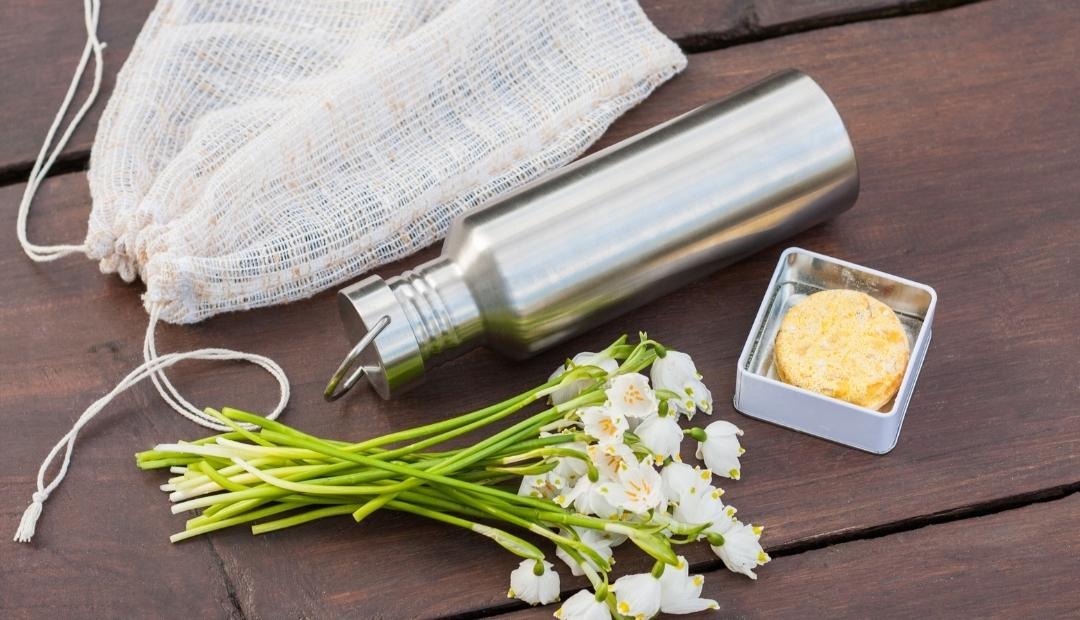Ever seen photos of small mason jars filled with trash? At first glance, they might look like your daily garbage. But for those in the zero-waste movement, these jars are filled with their one year’s trash.
You probably think that this lifestyle isn’t for you. After all, we’re used to taking out the trash and waiting for the garbage truck to come and pick it up.
But if you’d like to help save the environment and save more money, you might want to give this lifestyle change a second thought.
In this post, we’ll help you easily begin your zero-waste journey with a few helpful tips.
Find Your Motivation
Whatever lifestyle you’re starting, it’s always best to refer to your “why.” Why are you going zero-waste? And why bother at all?
Is it to gain a bit more financial freedom? Or help reduce plastic waste in the oceans?
Going zero-waste can’t be done overnight. It takes time, especially as you make the transition.
So whenever you get discouraged, keep your “why” or your inspiration in mind to get back on track quickly.
Think Before Making a Purchase
Living without waste means not producing trash in the first place. And you can do this by avoiding new purchases.
Before you buy anything, think carefully about whether you really need it. If you decide to make a purchase, you have to explore your sustainable options.
Get secondhand clothes from a thrift shop rather than buying designer clothes. Or shop in a farmer’s market instead of buying pre-packaged vegetables.
Replace Disposables With Reusables
Open your trash bin and see what kind of garbage takes up most of the space. We’ll take a wild guess here: it’s mostly filled with takeout containers and single-use packaging.
When you think about the disposables you… well, dispose of, it’s easy to understand how important it is to switch to reusables.
So forget about store-bought plastic water bottles– always bring a reusable water bottle with you. Or, instead of placing groceries in plastic or paper bags, store them in a reusable shopping bag.
Learn to Do It the DIY Way
Speaking of takeouts and groceries, here’s another way you can cut down on waste: cook at home. Or try making things the DIY way.
No more ordering takeouts packed in plastic and styrofoam. Make home-cooked meals so that the only waste you’ll produce is a small pile of compostable vegetable scraps.
Apart from cooking, you might want to craft some household products yourself, like toothpaste, shampoo bars, and body butter. That way, you can steer clear of disposable packaging–while taking up a fun new hobby.
Recycle Organic Waste
Another fun hobby you can enjoy in a zero-waste lifestyle? Gardening with DIY compost.
From coffee grounds to leftovers, there are lots of organic materials you can recycle. Plus, you don’t need a backyard to create your own compost pile. You can find different compost methods perfect for apartment living, like bokashi and vermicomposting.
When you start composting, you’ll not only have a lighter trash bag–you’ll also have nutrient-rich soil for your houseplants.
Join Your Community
Any major transition can be difficult when you’re alone. So to make your zero-waste journey more manageable, you’ll have to find like-minded people.
Explain to your friends and family the joy of zero-waste living and ask them to join in the fun. Or search for local zero-waste groups and join their events.
It can also be as simple as supporting local businesses with sustainably made or grown products.
Again, going zero-waste can’t be done overnight. But when more and more people try to live an eco-friendly lifestyle, we can significantly reduce our impact on the environment.
Oxford at The Ranch Apartments in Waller, TX



